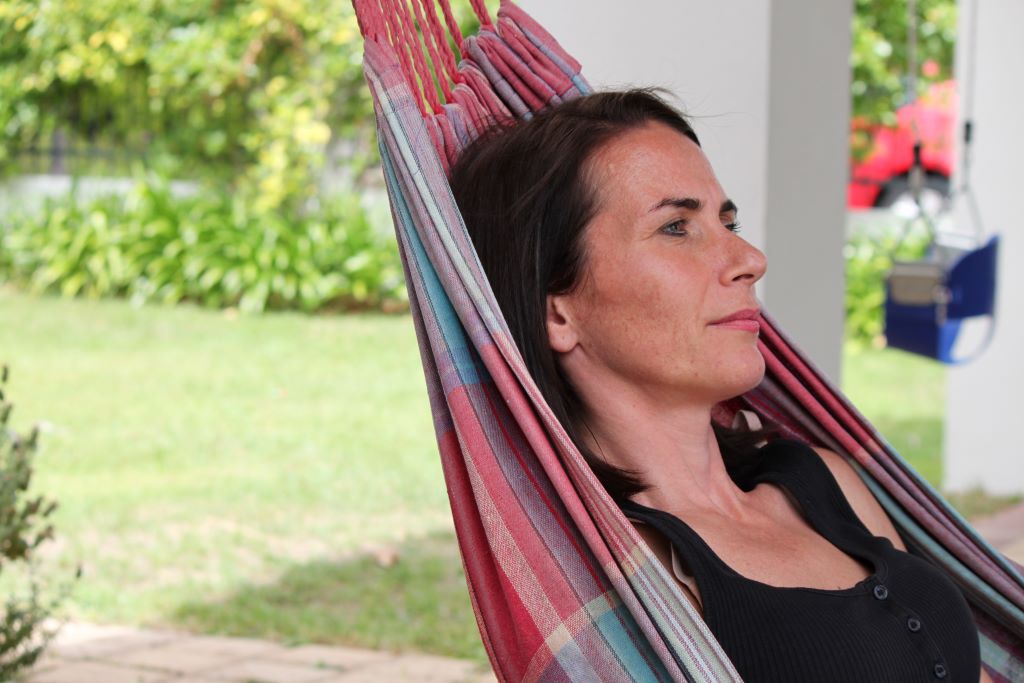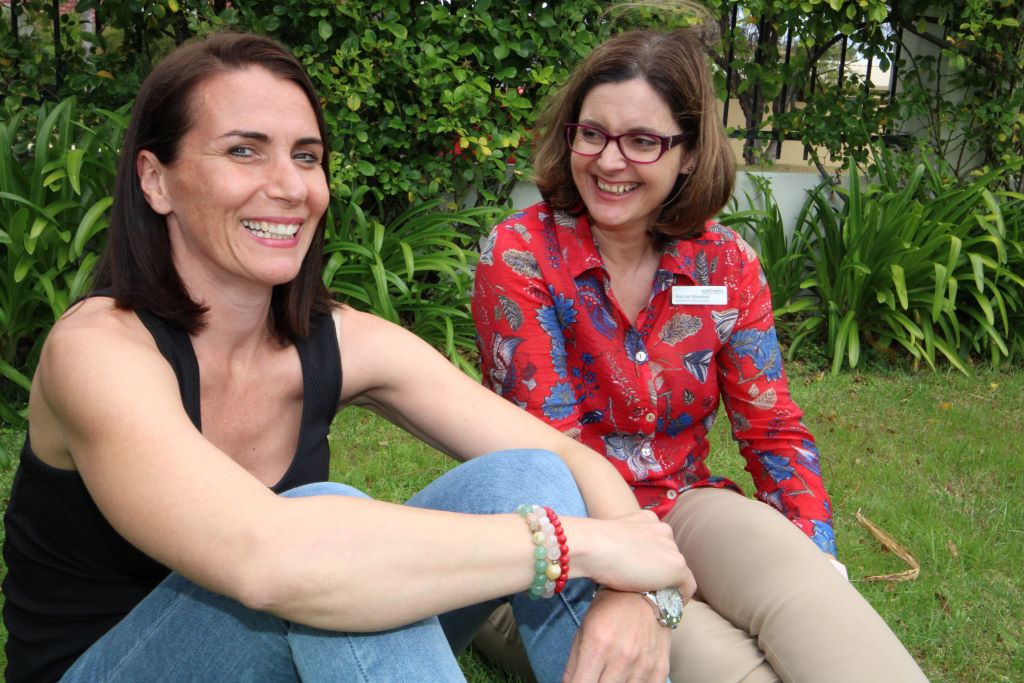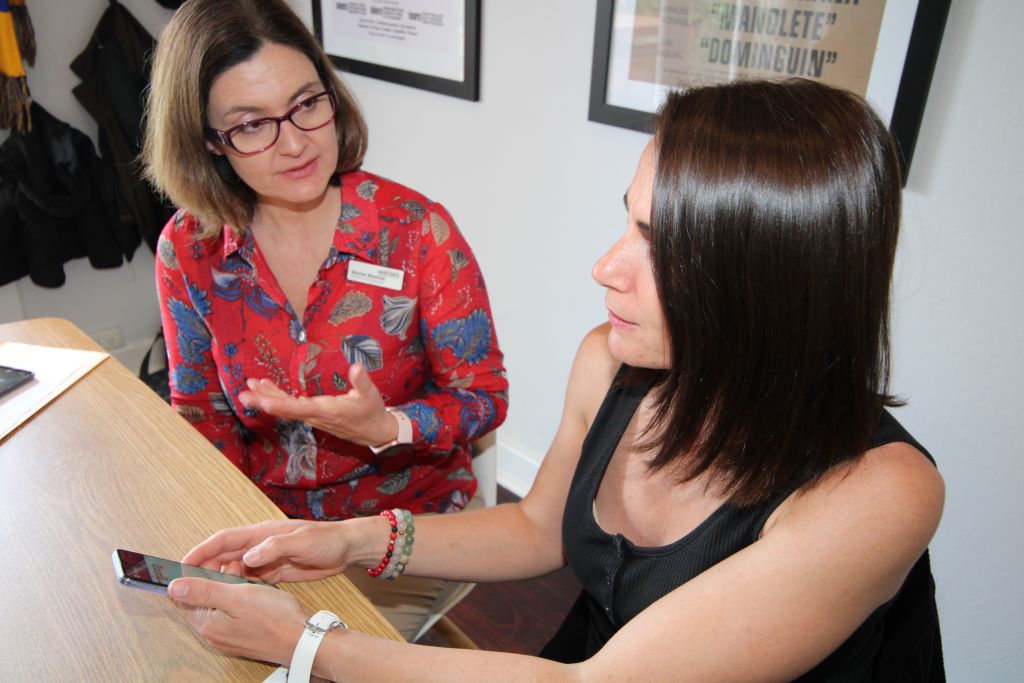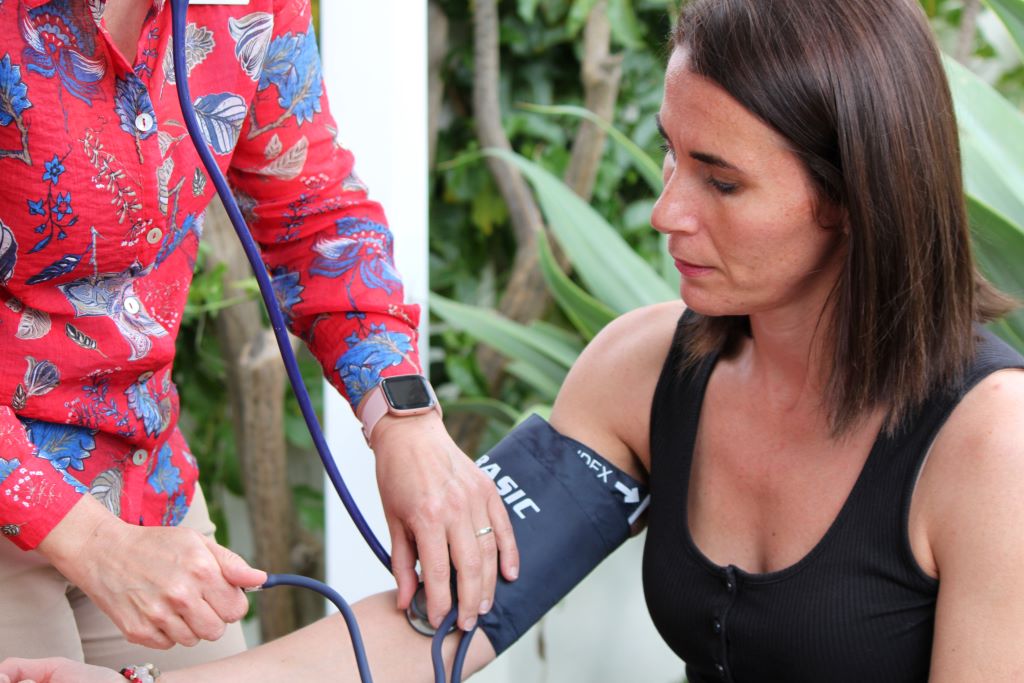Irena said she made a decision to engage the Parkinson’s Nurse Specialist (PNS) service. She said initially she was feeling rather hesitant about it.
“At first I thought I didn’t need the Nursing Service – I’m not 80-years-old after all,” she said with a cheeky smile.
“It was then I realised how much my life had changed and how I lived was different now. The nurses have been such a wonderful support. They provide such good advice and in the comfort of my own home.”
“My first nurse came into my home, and she was like Mary Poppins – I felt so safe to be surrounded by a wealth of knowledge and care. That empathic connection was such a contrast from a busy Neurologist.”
Parenting has changed and that's okay
Irena keeps busy with her two young boys, aged 3 and 8. She explained with a knowing gaze, that parenting had changed significantly since the Parkinson’s diagnosis.
“Preparing lunches and getting everyone ready is hard when I’m having a bad day, but having said that, I also appreciate every single moment I spend with my boys. When I’m present with them, it’s special and I celebrate the little things more,” she said.
Irena looks out at the swing near the garage and her eyes pause at the children’s soccer goal.

Irena said she likes to keep very fit and uses nutrition, positive thinking, meditation and exercise to help manage her symptoms, including her mental health.
“Parkinson’s made me realise I am not invincible. I have good days and bad days. On most days, the left side of my body is affected. It is slow and becomes quite stiff,” she said.
Things have changed a lot since diagnosis and becoming socially connected to her community has become increasingly more challenging, Irena explained.
“Now I suffer from anxiety and that tends to affect my symptoms. That mind-body connection is so clear and when I’m saying something, my body will say something different, which makes social interaction difficult.”
“I used to have an outgoing, bubbly personality and now the Parkinson’s has changed that. The world has gotten smaller.”
Self-care and Parkinson's
PNS Rachel Marshall said prioriting self-care is particularly important when you have young children and even more when you are living with Parkinson’s in addition to the daily challenges of parenting.
“Sometimes it’s hard because that self-care is so individual to the person, and we don’t have all the answers, but we can meet you on your journey and do whatever we can to assist and support,” she said.
Irena recently attended a young onset support group meeting and said such groups are clearly needed in the WA community for more young people living, parenting and working with Parkinson’s.
“I got some nice information from the in-person support group, but having to travel so far made it tough for me too. I have joined some online groups where I have found some personal connections with other people at that same stage of their life,” she said.
“We feel for each other and can give each other recommendations, which has been really nice.”
Rachel has been visiting Irena in her home for more than one year and she said it was refreshing to learn from her patients who were so keen to embrace wellness.

“With a touch of compassion and kindness, the community around us has never been more important. It has been a pleasure to support these amazing people like Irena,” she said.
“We can be that link between the client and the Neurologist. It’s challenging to see young people unable to make connections with others living with the condition.”
Irena said having Rachel as a support in her life had changed so much for her.
“It’s having that human side, that is governed by kindness and empathy. Rachel is an experienced empathic, lovely woman who is not just here for me, but provides me with useful information whenever I need it. It’s good to know there’s the PNS service supporting me at every stage of my journey.”
Irena explained that she went to the gym often and it was a good outlet for her.
“I really get a lot out of the exercise, but you second guess yourself with everything and when I’m anxious, my body just tremors, which makes things more challenging because it’s a visual representation of the Parkinson’s,” she said.
Rachel said that exercise is important for managing Parkinson’s symptoms and for reducing inflammation in the body.
“Exercise is crucial in the management of Parkinson’s because it is the key to maintaining muscle strength, flexibility and balance,” she explained.
“Several recent studies have linked exercise with increased levels of irisin, a small polypeptide secreted by skeletal muscle during exercise. This has been shown to reduce inflammation and improve cognitive function in neurodegenerative conditions in mouse models.”
“Exercise can also assist with heart and lung function, joint pain, bone health and constipation and bowel health.”

Irena said despite being diagnosed at such an early age, having Parkinson’s was not the worst thing she could have.
“It’s not that bad – I can see, I can feel, I can walk, I can cry, I can laugh – even in the neurological sphere of things, it’s not the worst condition I could have been diagnosed with,” she said.
By telling her story, Irena hopes she can engage others in the conversation about neurological conditions such as Parkinson’s, especially in the hope that other young people can connect with her journey.
About the Parkinson’s Nurse Specialist Service
The Parkinson's Nurse Specialist (PNS) service provides education and support for people living with Parkinson's. A nursing assessment provides the basis for ongoing care, addressing any questions regarding the condition and treatment options.
The PNS is community-based and person-centred, with most visits occurring in the client's homes. The Nurses are employed to cover the Perth metro area and the South West.
This innovative service, the first of its kind in Australia, is funded by the Department of Health WA. Parkinson's WA and charitable trusts. Our wonderful team of Nurses are dedicated to supporting the Parkinson’s community in Western Australia with no charge to clients.

Have you considered regular giving to Parkinson’s WA?
Supporting Parkinson’s WA with regular ongoing donations is the easiest and most cost-effective way to support our mission, and know that you are making a difference.
Monthly donations are vital as they help us to plan for the future. Because they are low cost to process, we can ensure that maximum funds are directed to providing essential services to people living with Parkinson’s in Western Australia, such as the PNS service.
Contact the Parkinson’s WA office on (08) 6457 7373 or info@parkinsonswa.org.au for more information, or find out more about the service here.
Words and pictures by Jacqui O'Leary
If you or anyone you know needs help, contact:
- Lifeline on 13 11 14
- Crisis Care on 9223 1111
- Kids Helpline on 1800 551 800
- Suicide Call Back Service on 1300 659 467
- Beyond Blue on 1300 22 46 36
- Headspace on 1800 650 890